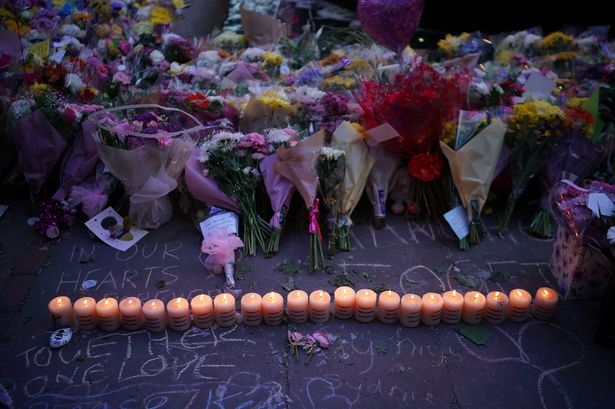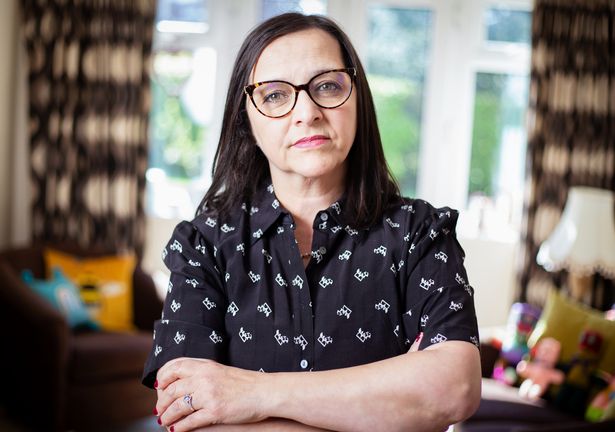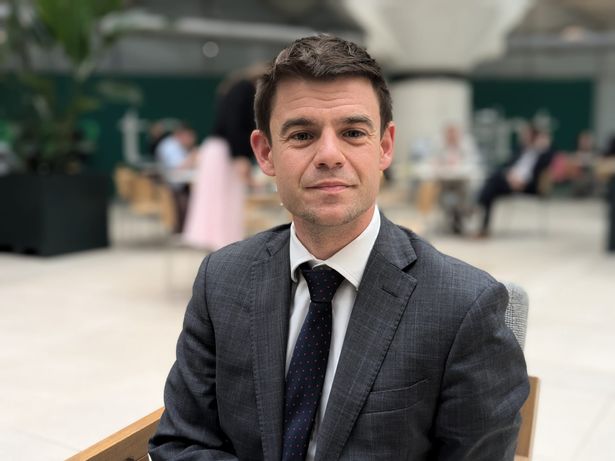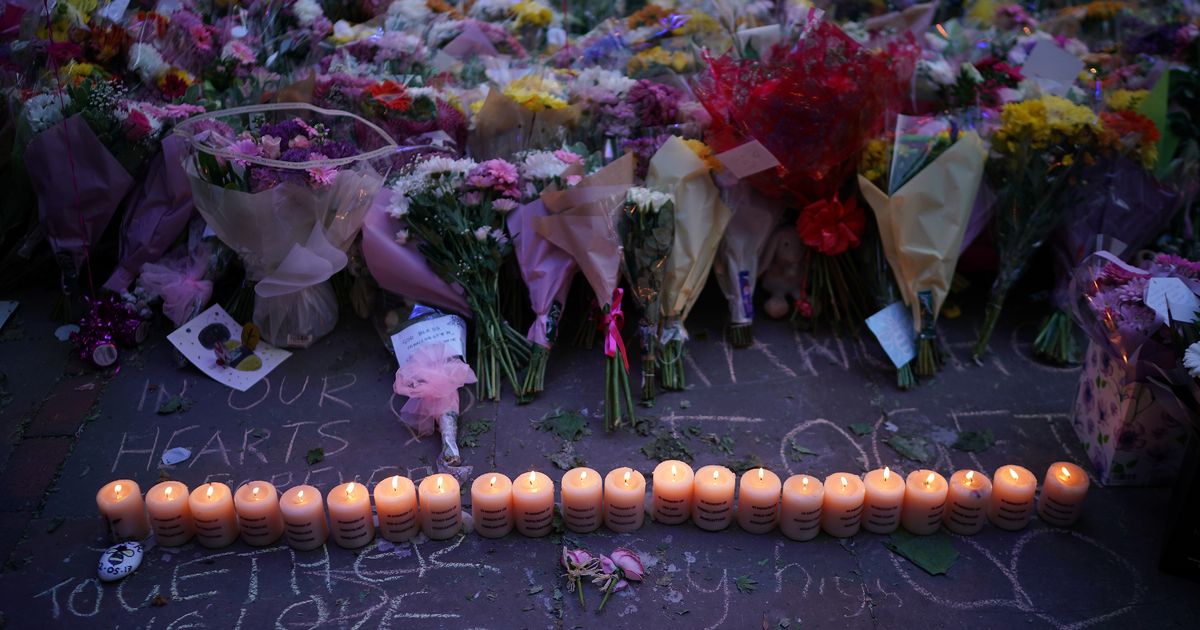Calls were made in the Commons for improved support for terror attack victims and their loved ones Floral tributes in Manchester following the bombing(Image: Getty Images)
Floral tributes in Manchester following the bombing(Image: Getty Images)
Support for survivors and the families involved in the Manchester Arena bombing was ‘too slow’ and ‘fragmented’, an MP has said as urgent calls were made to improve the help given to those affected by terror attacks.
Speaking in the Commons during a debate on state support for the victim’s of terror attacks on Thursday (July 10), Bolton West MP Phil Bricknell was among other ministers calling for stronger and robust provisions.
This included through the allocation of family liaison officers, quicker psychiatric assessments and further investment in areas of recovery, ‘to put right years of neglect’.
Never miss a story with the MEN’s daily Catch Up newsletter – get it in your inbox by signing up here
Speaking during the debate, Mr Bricknell discussed the Manchester Arena bombing of 2017. The horrific blast, at the end of an Ariana Grande concert, went off on May 22 and was perpetrated by extremist Salman Abedi and aided by his brother, Hasham Abedi.
The bomb was the deadliest act of terrorism and the first suicide bombing in the UK since the 2005 London attacks – killing 22 people and injuring over 1,000.
Mr Bricknell also referenced the ongoing efforts of ‘determined campaigner’ Figen Murray, mother to victim Martyn Hett, who, in her son’s legacy, has for years lobbied the government to implement tougher counter-terrorism legislation and restrictions on music and events venues to prevent further atrocities.
 Figen Murray, mum of Martyn Hett, who was one of the 22 people killed in the Manchester Arena terror attack(Image: Figen Murray)
Figen Murray, mum of Martyn Hett, who was one of the 22 people killed in the Manchester Arena terror attack(Image: Figen Murray)
“When terrorists strike, they leave behind not just headlines, but long trails of pain and trauma. Families are torn apart, survivors bear both physical and emotional scars, and communities are left devastated. That is why we in this place have a huge responsibility to get the support for victims of terrorism right,” Mr Bricknell said.
“As an MP from the north-west of England, I want to touch on the Manchester Arena bombings in 2017. That evening, thousands of people—many of them children—left home to attend a concert, and either had their lives changed forever, or sadly never returned home at all.
Join the Manchester Evening News WhatsApp group HERE
“It was an event that I will never forget; I checked my mobile phone and found that an attack had happened, unaware of its scale, nature or severity, and struggled to comprehend why anyone would undertake such a cowardly and heinous crime. The entire region of Greater Manchester, including my community in Bolton, was shaken to its core.
“Among the dead was Martyn Hett, a young man from Stockport. His mother, Figen Murray, has since become one of the most determined campaigners for change in this country. Figen has consistently advocated for Martyn’s law, which finally received Royal Assent in April. It will require venues and public spaces to assess the risk of terrorism and take proportionate preventive steps to protect the public. Importantly, it will embed a culture of vigilance and preparedness, ensuring that safety is never an afterthought.”
It is now the Terrorism (Protection of Premises) Act 2025 – Martyn’s lasting legacy. There will be a two-year period of implementation before the Act comes into force.
The Security Industry Authority (SIA) will be the regulator for the legislation, which will compel public venues where 200 to 799 people can gather to implement plans to keep people safe in the event of a terror attack happening at, or near, the location. They could include evacuation and lockdown plans, together with other emergency procedures.
Places and venues with a capacity of 800 or more, will have to take measures to stop terror attacks from happening in the first place, such as having CCTV systems, bag search policies or carrying out vehicle checks where appropriate.
Mr Bricknell continued: “While protection is key, we must go further and faster to support victims if and when attacks sadly do happen. Although some people have lost loved ones or family members, and others have continued to battle long-term trauma, the way communities came together to support each other after the Manchester Arena attack was inspiring. But we have to recognise that the state’s support for the survivors and the families of the victims of the bombings was too slow and fragmented.”
 Phil Brickell(Image: Manchester Evening News)
Phil Brickell(Image: Manchester Evening News)
It was announced earlier this month that victims and survivors of terrorism will receive further support through the establishment of a new dedicated support hub. The new 24/7 support hub will provide specialist, trauma-informed care to victims and survivors of terrorism, ensuring they have access to the help they need.
“We have taken a landmark step forward, but I share colleagues’ beliefs that we can still go further to do the right thing by these people,” Mr Bricknell added.
He, among other MPs, called for the implementation of four initiatives to support terror victims and their families; the survivors’ charter, to provide a list of guaranteed and legally enforceable rights for those affected; the criminal injuries compensation scheme to provide ‘streamlined and trauma-sensitive’ handling of claims; further mental health support and accessibility for victims on waiting lists and, legal support for victims who ‘too often go unrepresented or have to rely on pro bono advice’.
The Bolton West MP added: “Terrorism is designed to divide us—to spread hate and fear—but after Manchester we saw the opposite,” he said. “We saw vigils in Albert Square and we saw young people in my constituency in Bolton raising money for victims as a clear sign of solidarity. We must ensure that every victim of terrorism, whether in Manchester, Westminster or anywhere else in the UK, is treated with dignity, fairness and enduring care and support.
“The Government has already taken some important steps forward after years of dither, but the best message we could send to the families of victims and all those who have campaigned tirelessly on these issues over the years would be to publish the 63 recommendations identified in the Home Office’s review of support for victims. Transparency now will allow us to work together to deliver equitable and realistic change. I hope the Minister will address those points directly.”
